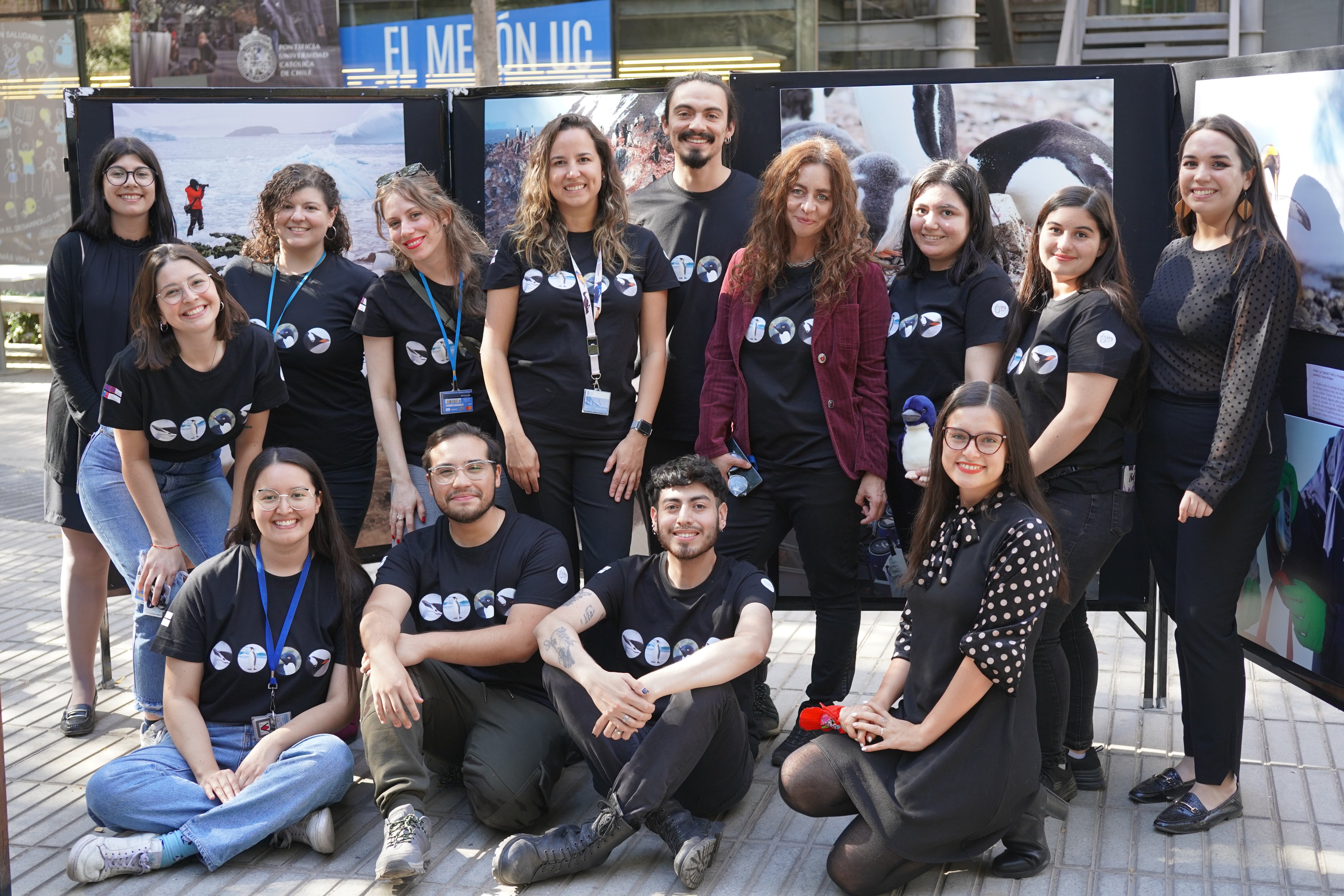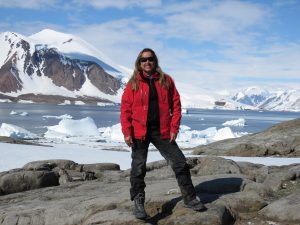
Juliana A. Vianna, MSc, PhD
Department of Ecosystems and Environment
jvianna@uc.cl
Juliana is a Biologist from the Pontifical Catholic University of Minas Gerais, Brazil; Master in Ecology, Conservation and Wildlife Management from the Federal University of Minas Gerais, Brazil; PhD in Biological Sciences, mention in Ecology from the Pontifical Catholic University of Chile.
From 2005 to 2010 Juliana worked at the Faculty of Ecology and Natural Resources of the Universidad Andrés Bello, from 2010 at the Department of Ecosystems and Environment, Faculty of Agronomy and Natural Systems of the Pontifical Catholic University of Chile, and from 2022 to date she is Principal Researcher at the Faculty of Biological Sciences and the Institute for Sustainable Development of the same university.
In addition, Juliana is Alternate Director of the Millennium Institute Center for Genome Regulation (CGR), Principal Investigator of the Millennium Institute BASE, and National Coordinator of the 1000 genomes for Chile project.
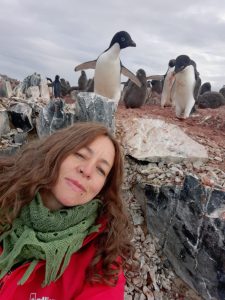
Fabiola León Miranda, MSc, PhD
lafabileon@gmail.com
Fabiola is a Biologist from the Universidad de Los Andes de Venezuela and PhD in Sciences with mention in Zoology from the Universidad Central de Venezuela in collaboration with the Pontificia Universidad Católica de Chile. She is currently a postdoctoral researcher at the Molecular Biodiversity Laboratory in conjunction with the Millennium Institute BASE, and is a researcher attached to the same Institute. She is also a collaborating researcher at the CRG Millennium Institute and the LiLi Millennium Nucleus.
Her main interests are focused on phylogeography, population and comparative genomics, doing her undergraduate thesis on phylogeography and genetic variability of the spectacled bear. His doctoral thesis focused on adaptive genomics of penguins of the genus Spheniscus, with emphasis on speciation mechanisms. In addition, she provides support to undergraduate and graduate students and laboratory management.
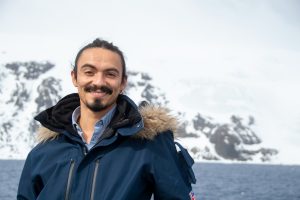
Eduardo Pizarro González, MSc
eduardo.pizarro@uc.cl
Eduardo is a Biologist with a specialization in Environmental Science from the Universidad de Chile and a Master’s in Natural Resources from the Pontificia Universidad Católica de Chile. His academic journey has been shaped by a deep interest in genomics and species distribution models, which he explored both in his undergraduate and master’s theses, focusing on the evolutionary and biogeographic history of the three South American fox species of the Lycalopex genus that inhabit Chile. Since then, she has involved in various research projects related to the genomics of birds and mammals, further strengthening his expertise in bioinformatics, molecular biology and evolutionary ecology.
Currently, his interests are centered on understanding how patterns of biological diversity and ecological interactions are structured in Antarctic ecosystems, with the aim of comprehending the impact of environmental changes on these systems, particularly focusing on birds, and how climate change may alter these ecological and evolutionary patterns.
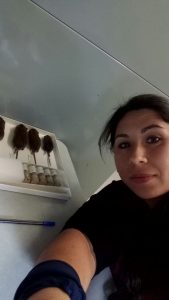
Carola Cañón Valenzuela, MSc, PhD
carolacanonv@gmail.com
Carola is a Biologist and Master of Science focused on zoology the Universidad de Concepción and a Ph.D. in Natural Sciences from Universidad Nacional de La Plata, Argentina.
Her research is focused on small mammals’ evolution, especially on rodents of the Sigmodontinae subfamily with emphasis on its systematics, phylogeography, taxonomy, and biogeography. Her Master’s thesis evaluated the phylogenetic relationships of the Abrotrichini tribe using molecular markers. In her doctoral research, she assessed the systematics of the Akodontini tribe, the only generic group of the subfamily without a comprehensive evaluation. To carry out this research, she integrated morphological and molecular evidence, and also evaluated its fossil record, possible host-parasite codivergence events and its use as taxonomic flags, and historical biogeographic aspects.
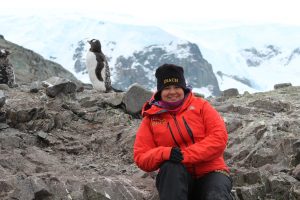
Daly Noll Vergara, MSc, PhD
daly.noll@ug.uchile.cl
Daly is a Marine Biologist, Master in Marine Biology from the Universidad Andrés Bello, and PhD in Ecology and Evolutionary Biology from the Universidad de Chile. She did her master’s thesis on the study of phylogeography and population genetic structure of the marine fish cabrilla (Sebastes oculatus), and in her doctoral thesis she studied the adaptive divergence of Gentoo penguin lineages through the detection of selection signals in their genomes.
She is currently a postdoctoral researcher at ANID-Universidad de Chile, where she develops her research line in speciation genomics.
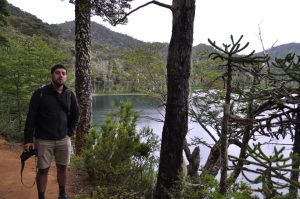
Paulo Zepeda Godoy, PhD (c)
pszepeda@uc.cl
Paulo is a Biological Science graduate from Pontificia Universidad Católica de Chile. Currently, he is a Ph.D. student in the Biological Science program Ecology mention at the same university. Throughout his career, he has focused on searching for patterns of genetic variability and structure in small vertebrates of Chile. He is currently working on the genomic diversity and structure of the invasive rodent Rattus rattus at a South-American level, particularly in Chile, searching for adaptation genomic signals to different Chilean ecosystems.
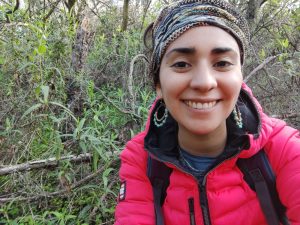
Gabriela Narváez Guíñez, MSc, PhD (c)
gabriela.narvaez.guinez@gmail.com
Gabriela has a degree in Plant Biotechnology Engineering from the Universidad de Concepción, a Master’s degree in Genetics from the Universidad Austral de Chile, and is currently a PhD (c) in Ecology and Evolution from the same university.
Her research is, on the one hand, to reconstruct the evolutionary and demographic history of the Nothofagus of South America through the sequencing of the complete genomes of these trees, and on the other hand, to understand the adaptation of one of the species of this genus: Nothofagus pumilio, which forms the arboreal altitudinal limit of the Andes Mountains throughout its range of distribution.
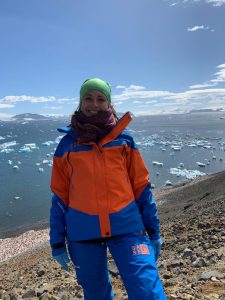
Lucila Belén Morales, PhD (c)
l.morales4@uandresbello.edu
Lucila has a degree in Genetics from the Universidad Nacional del Noroeste de la Provincia de Buenos Aires (UNNOBA), Argentina. She is currently a PhD candidate in Bioinformatics and Systems Biology at the Universidad Andrés Bello and researcher of the Fondecyt Regular 1210568 project. Her research focuses on identifying the sources of genomic differentiation both intraspecific and interspecific in seabirds of the family Stercorariidae (skuas/jaegers), addressing aspects such as genes under selection, evolution of gene families and structural variants. These studies seek to understand the adaptive responses to the prevailing ecological conditions in the Arctic and Antarctic regions that have influenced the speciation of these lineages. She is currently affiliated as a doctoral researcher at the Millennium Institutes BASE and CRG.
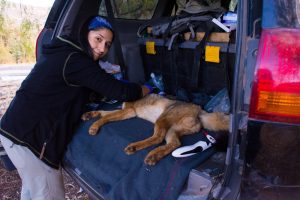
Claudia Ulloa Contreras, MSc
caulloa4@uc.cl
Claudia is a Veterinary Doctor from the Universidad de Chile, Master in Natural Resources from the Pontificia Universidad Católica de Chile and current student of the PhD program in Biological Sciences mention in Ecology at the same university. She is a collaborator in several research projects related to wildlife health and environmental consulting. Her current research seeks to identify genes in wild populations of shorebirds and seabirds involved in susceptibility to avian influenza virus.
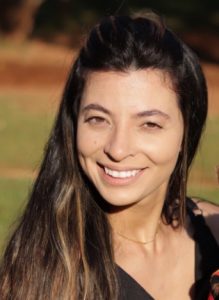
Raiane Amorim, MSc, PhD (c)
raianelprim@gmail.com
Raiane holds a Master’s degree in Zoology from the Federal University of Minas Gerais, Brazil. She is currently a PhD candidate in the Department of Vertebrate Zoology at PUC Minas Gerais, Brazil, and a scholarship recipient in the Department of Ecosystems and Environment at PUC Santiago, Chile. Her research project focuses on studying the genomics of Antarctic cormorants and their distribution in the face of climate change, providing valuable insights into the ecology and conservation of this Antarctic endemic bird.
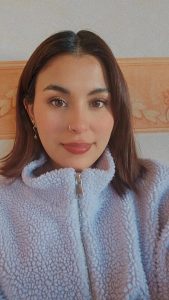
Carolina Márquez Gajardo
c.marquezgajardo@gmail.com
Carolina has a degree in Marine Science and is a Marine Biologist from the Universidad Andrés Bello. She is currently a student of the PhD Program in Biological Science, with a specialization in Ecology, at the Pontificia Universidad Católica de Chile. Her research focuses on reconstructing the diversification history of an Antarctic and Subantarctic echinoderm, genus Abatus, using population genetics and phylogenomics approaches
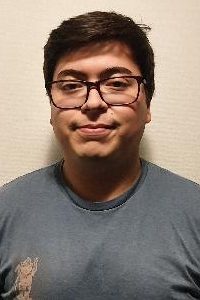
Francisco Ignacio Pinilla Riquelme, MSc
franciscopinilla.pr@gmail.com
Francisco has a degree in Medical Technology and a Master’s degree in Genetics from the Universidad de Chile. He is currently pursuing a PhD in Ecology and Evolutionary Biology at the same university. His doctoral research focuses on understanding the population dynamics and demographic changes of Huemul (Hippocamelus bisulcus) from the last glacial maximum to the present, using genomic tools. This work aims to generate key information for the conservation of this species.
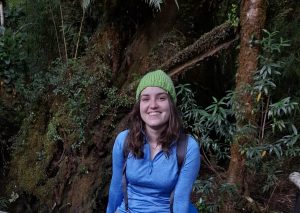
Elisa González Ugalde, MSc (c)
ejgonzalez3@uc.cl
Elisa holds a Bachelor’s degree in Forestry Engineering from the Pontificia Universidad Católica de Chile and is currently pursuing a Master’s in Natural Resources at the same institution. Her main interests focus on conservation, particularly of terrestrial mammals. She is currently conducting genomic research on the Dromiciops genus, evaluating signals of selection in its two species.
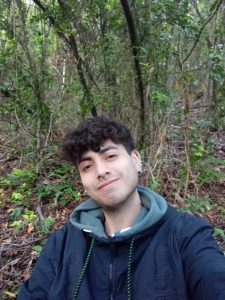
Eduardo Fabián Jiménez Delgadillo, MSc (c)
efjimenez@uc.cl
Fabián holds a degree in Biology from the Universidad Autónoma de Querétaro, Mexico. He is currently pursuing a Master’s in Natural Resources at the Pontificia Universidad Católica de Chile, researching the genomic basis of phenotypic variation associated with coloration between Macaroni and Royal penguins, attributed to local adaptation processes. He is a student affiliated with the CRG and BASE Millennium Institutes.
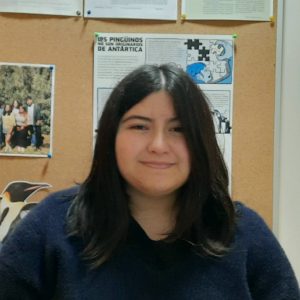
Paula Marín Avendaño
paula.marin@uc.cl
Paula is a biology student at the Catholic University. Her area of interest is applied genetics in biodiversity of chilean fauna.
She is currently studying the genome of the Pygoscelis genus at the Molecular Biodiversity Laboratory.
Diego Alejandro de Jesús Cisternas Espinosa
dacisternas@uc.cl
Diego is a Biochemistry student at the Pontificia Universidad Católica de Chile. He is currently working with pudu (Pudu puda), performing selection analysis to explore the molecular mechanisms of its adaptation.

Constanza Ignacia Umaña Larrondo
constanza.umana@uc.cl
Constanza is a Biology student at the Pontificia Universidad Católica de Chile. She is currently working with the family Stercorariidae, evaluating its population structure, comparing populations from the Arctic and Antarctic poles.
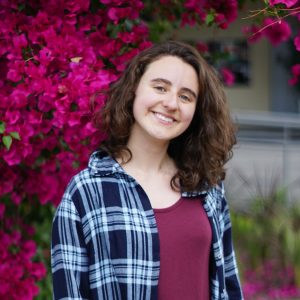
Constanza Marín Rivero
cmarinr@uc.cl
Constanza is a student of College CCNN at the Pontificia Universidad Católica de Chile, pursuing a double major in Biology and Sustainable Development, with a minor in Ecology Research. Her interests in science are varied, ranging from conservation of native fauna, understanding phylogenies and evolutionary processes, and science outreach. Previously she has worked in monitoring of the gato güiña with camera traps in the El Cañi Nature Sanctuary. Currently, she is evaluating the molecular sexing of skuas (family Stercorariidae).
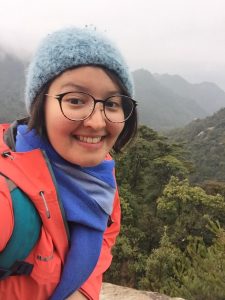
Josefina “Tote” Jorquera
mojorquera@uc.cl
Josefina holds a degree in Biochemistry from the Pontificia Universidad Católica de Chile and a Diploma in Antarctic Affairs from the Universidad de Magallanes. Since 2021, she has been conducting research under the FONDECYT 1210568 project, studying population genomics of southern hemisphere skuas. She is currently a student in the Master of Science program, with a mention in Genetics, at the Universidad Austral de Chile. Additionally, she is a member of the Antarctic Youth Coalition (AYC), a youth organization that promotes public interest and participation in Antarctic matters.
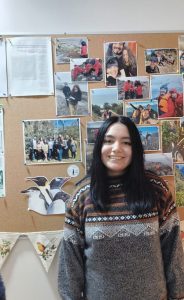
Carolina Peñaloza
caropv@uc.cl
Carolina is a biology student at the Catholic University. Her area of interest is vertebrate fauna, especially birds and mammals.
She is currently studying the genome of the Pygoscelis genus at the Molecular Biodiversity Laboratory.
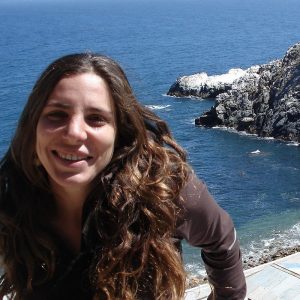
Constanza S. Weinberger Illanes
conysw@gmail.com
Constanza is a Biologist from the Simón Bolívar University of Venezuela, and has a PhD in Biological Sciences with a mention in Ecology from the Pontifical Catholic University of Chile. In his doctoral thesis she studied the population structure, phylogeography and demographic history of the common sea lion, Otaria flavescens, in Chile. She has worked as a biostatistician and researcher in various research projects. Currently, she also performs administrative and research tasks in the Molecular Biodiversity Laboratory, as part of the team of the Millennium Base Institute.
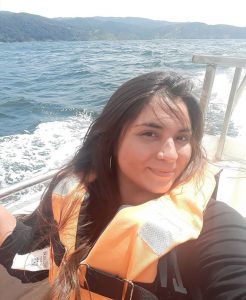
Camila Cisterna Menares
c.cisternamenares@gmail.com
Camila is a of Marine Biologist from the Andrés Bello University, and an undergraduate student of Veterinary Medicine from the same college. To obtain the title of Marine Biologist, Camila studied selection on penguin mitogenomes of the genus Eudyptes, at the Molecular Biodiversity Laboratory. She currently develops administration and research activities in the laboratory, associated with the LiLi millennium nucleus.
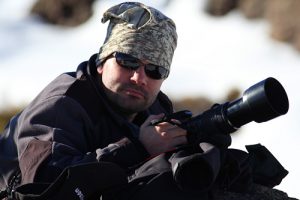
Rodrigo Lira Hurtado
rilira@uc.cl
Rodrigo is an agronomist engineer specialized in animal sciences at Pontificia Universidad Católica de Chile (PUC). He has worked on research related to production systems, livestock production quality, and wildlife and environment. Also, he is nature photographer.
Currently, he is enrolled in the PhD program at PUC and his research topic is the genome diversity of wild South American camelids, Lama guanicoe y Vicugna vicugna. His research aims to understand wild South American camelids adaptation to extreme environments and evolution processes.
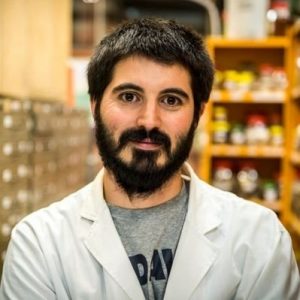
Nicolás A. Lois
nlois@ege.fcen.uba.ar
Nicolás graduated in Biology and is a PhD student at Universidad de Buenos Aires, Argentina. Throughout his career, he has used genetic tools to answer ecological and evolutionary questions in birds. His PhD project is focused on measuring the connectivity in rockhopper penguins populations and the factors which regulate gene flow between their colonies, within the current climate change scenario.
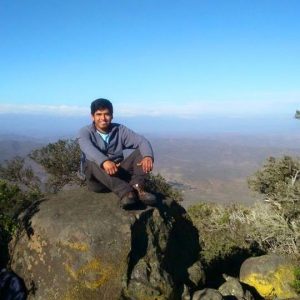
Elfego Cuevas
elfcuevas@gmail.com
Elfego is a Veterinarian and Master in Management of Marine and Coastal Ecosystems from the University of Veracruz, Mexico. He has worked in epidemiology of vector-borne diseases in wildbirds.
He is a PhD in the Conservation Medicine Program at the Universidad Andrés Bello. In his thesis, he evaluates the inter-annual patterns of prevalence of avian malaria, chronic effects of the disease over telomere length and MHC gene diversity in the Thorn-tailed rayadito (Aphrastura spinicauda) populations throughout a latitudinal gradient.
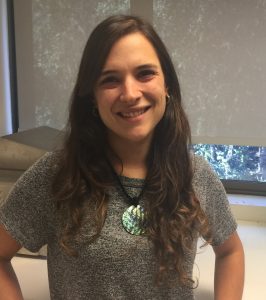
Maria Jose Frugone Wielandt
mjfrugone@u.uchile.cl
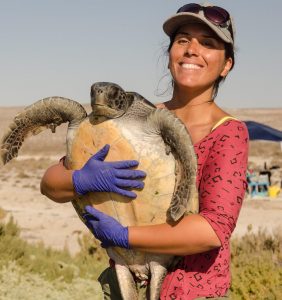
Rocío Alvarez Varas
ralvarez03@gmail.com
Rocio is a Veterinarian from the Universidad Mayor and Master in Natural Resources from the Pontificia Universidad Católica de Chile. Currently she is developing her PhD in Ecology and Evolutionary Biology at the Faculty of Sciences of the Universidad de Chile.
Her Master’s thesis was developed at the Laboratory of Molecular Biodiversity where she focused on the morphological variation and phylogeographic patterns of six bird species of the genus Phrygilus. Her doctoral was focused on the morphological and genetic variation of C. mydas (green turtle) in the Western Atlantic and Eastern Pacific.
Rocio is a professor in Biological Conservation and Ecotoxicology and she was director of an NGO dedicated to Research and Conservation of Sea Turtles in Chile during 5 years.
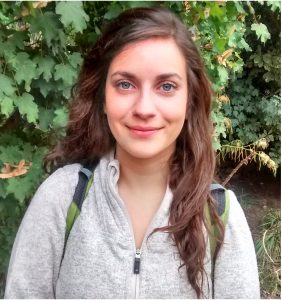
Bernardita Julio Kalajžić
bjulio@uc.cl
Bernardita is a Veterinarian from the Universidad de Chile. Currently she is a Master student of the Natural Resources Program at the Pontificia Universidad Católica de Chile, with intest in vertebrate management and conservation.
Bernardita is finishing her Master thesis at the Laboratorio de Biodiversidad Molecular, where she has studied phylogeography and population genetics of Lycalopex culpaeus y Lycalopex griseus.
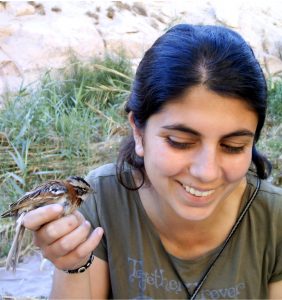
Daniela Doussang
danieladoussang@gmail.cl
Daniela is a Veterinarian from the Universidad de Concepción. Her studies have been focused on hematology and blood biochemical of wild birds.
Currently, Daniela is finishing her PhD in Veterinary Sciences at the Universidad de Concepción, where she has investigated on the distribution, prevalence and phylogeography of avian hemoparasites in South American birds.
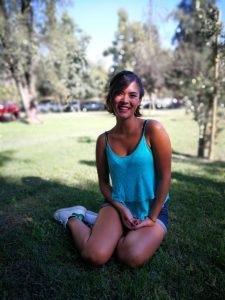
Valentina Muñoz Farías
pvmunoz1@uc.cl
Valentina is a Bachelor in Marine Biology from the Pontificia Universidad Católica de Chile. Currently she is a Master student of the Natural Resources Program, Conservation and Wildlife Management mention at the Pontificia Universidad Católica de Chile. Her master thesis is focused on phylogeography of the Humboldt penguin (Spheniscus humboldti) using Next Generation Sequencing techniques.
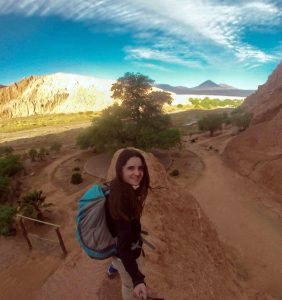
Isidora Mura Jornet
imura@uc.cl
Isidora is a Biologist and Master in Natural Resources from the Pontificia Universidad Católica de Chile. She investigated chinstrap penguin (Pygoscelis antarcticus) population genetic structure, as well as the morphological variation and sex identification in Antarctic penguins, using molecular tools and morphological traits.
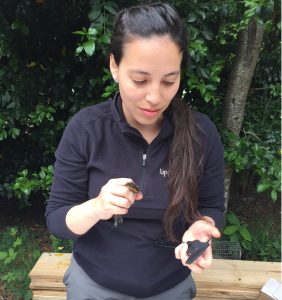
Camila Barría
ctbarria@uc.cl
Camila is an Agronomist with a mention in Environmental Management and Master in Natural Resources from the Pontificia Universidad Católica de Chile.
Camila has conducted research in the Barcode of Chilean reptiles and she completed her Master thesis on family relationship and extra-pair copulation in papua penguins (Pygoscelis papua).
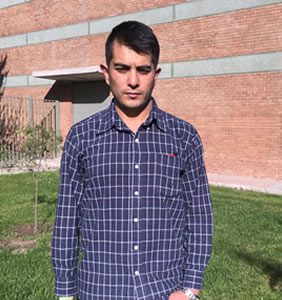
Ignacio Acosta Bravo
Ignacio.acosta.b@gmail.com
Ignacio is an Environmental Biologist from the Universidad de Chile and Master in Natural Resources from the Pontificia Universidad Católica de Chile.
In his Master thesis, Ignacio studied the demography and genetic structure of the green-backed firecrown (Sephanoides sephaniodes) populations, the most important vertebrate pollinator of the native forest of the southern cone.
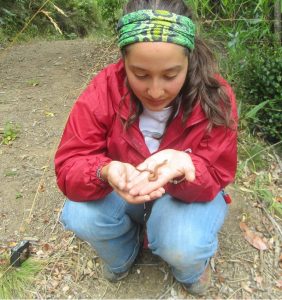
Nicole Sallaberry Pincheira
nicolesallaberryp@gmail.com
Nicole Sallaberry Pincheira graduated as a Veterinarian at the University Andres Bello in 2011. She completed her Master of Natural Resources in the Laboratorio de Biodiversidad Molecular at the Faculty of Agriculture and Forestry with Dr. Juliana A. Vianna, with whom she worked with since 2006 to present. Her work is focused on conservation genetics of Chilean population herpetofauna and population health related with epidemiology and molecular immunology of Humboldt and Magallanes penguins.
At present she teaches classes related to zoological medicine and rehabilitation of wildlife and is responsible for the Rehabilitation Wildlife Unit at Andres Bello University. She is also part of the Board of the Association of Wildlife Veterinarians (AMEVEFAS) from 2013-2016 and is an active member of the Society of Biology of Chile, Evolution Society of Chile and Herpetology Network Chile.
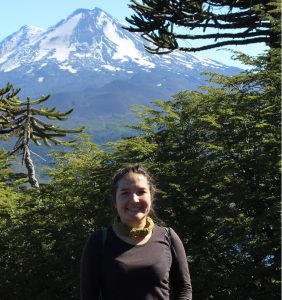
Mónica Mora
mopaumoca@gmail.com
Mónica is a Veterinarian at the Universidad de Chile and Master in Natural Resources from the Pontificia Universidad Católica de Chile.
She has conducted research on transmission of infectious diseases of Leopardus guigna populations and also on genetics field of Neovison vison and Lontra provocax populations. At present she is working on outreach projects and scientific assessment.
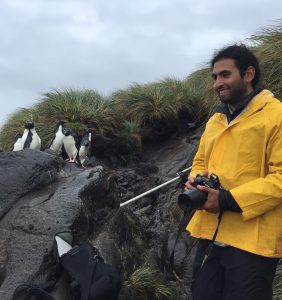
Marcelo Fuentes Hurtado
fuentes.hurtado@gmail.com
Marcelo is a Veterinarian from the Universidad Andrés Bello. He received a Master´s degree in Natural Resources, Area Conservation and Wildlife Management at the Pontificia Universidad Católica de Chile.
Marcelo has worked with Dr. Vianna since 2006 investigating phylogeography and conservation of Pudú (Pudu puda). His master thesis was focused on the effects of the last glacial maximum on the demographics of carnivorous species threatened with moist temperate forests using niche modeling.
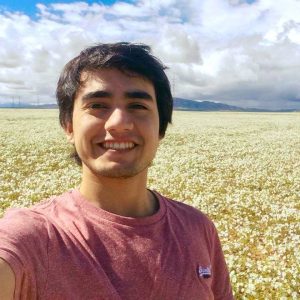
Gustavo Ortiz Carvajal
Gustavo holds a degree in Biology with a focus on Natural Resources and Environment from the Pontificia Universidad Católica de Chile. Throughout his career, he has specialized in the areas of Biodiversity Conservation, Environmental Assessment, and Global Change, always maintaining a strong interest and commitment to Environmental Outreach and Education.
He is currently pursuing a Master’s in Natural Resources at PUC and is conducting research on the genetic structure and phylogeography of the Thorn-tailed Rayadito (Aphrastura spinicauda), a passerine bird widely distributed across Chile (30ºS – 56ºS).







